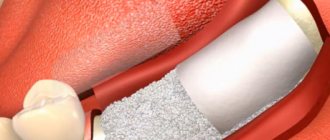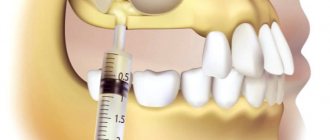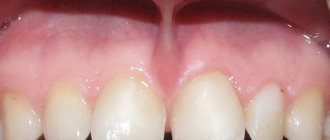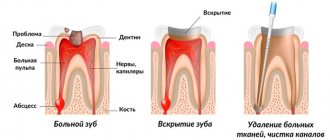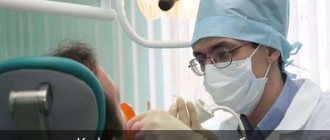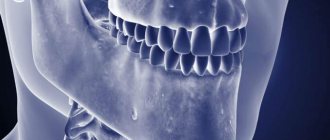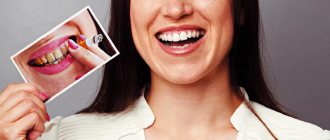Dental implantation
The dental implantation process involves surgery. Although the localization is minimal, the integrity of tissues and blood vessels is nevertheless compromised, and this is stress for the body. During the entire postoperative period and until complete healing, you need to treat yourself with special attention and care. This approach significantly increases the chances of successful implantation and reduces the risk of rejection.
In the first days after surgery, it is necessary to completely avoid any physical activity to minimize possible complications such as bleeding, suture dehiscence and swelling.
How long you will have to abstain from sports depends, among other things, on the type of implantation:
- Classic implantation is done in 3 stages: Implant insertion (complete healing up to 1 month)
- Prosthetics with an element forming the gum contour (complete healing up to 14 days)
- Installation of abutment and crown (1 day)
Implantation is a modern method of tooth restoration
Today, implantation is the most progressive method of restoring missing teeth. Any design can be installed on implants, from single crowns to complete dentures for edentulous patients.
Implantation is indicated for everyone who, for one reason or another, has lost one or more teeth in any part of the dentition. Before implanting roots, an examination is required. During its course, the possibility of implantation is determined, contraindications are identified, and a strategy for future prosthetics is developed. The success of implantation is the complete engraftment of the implant with the ability to attach a prosthesis to it. The outcome largely depends on how the patient behaves after root installation. In particular, it is important how closely the patient follows the restrictions.
When can you exercise after dental implantation?
In the first weeks after each type of implantation, it is necessary to refrain from any stress. Muscle tension and sudden jumps in blood pressure, severe shaking and hypothermia will negatively affect the healing process.
After the two-week period, you can discuss your progress and the possibility of returning to exercise with your dentist. A visual inspection and a photograph will allow you to draw a conclusion about which loads are safe.
Any martial arts and contact sports will be strictly prohibited for the entire period of engraftment and fixation of the implant in the bone. This also includes intense strength training with lifting heavy weights, jumping and any other sports that pose a risk of facial injury.
After your crown is installed, re-discuss with your doctor your weight tolerance. Most likely, you can gradually begin to return to your usual rhythm.
What restrictions are imposed on the patient?
Any surgical intervention in the body requires time for a recovery period. Implantation is no exception. The fact that the patient goes home immediately after the implantation procedure does not mean that he can immediately return to normal life. It is necessary to carefully monitor your health for several days. No changes are required when performing normal household chores, but it is better to postpone intense sports activities for a week after dental implantation.
It doesn't matter what the design of the implant is. If excessive stress is applied, rejection will occur. The healing process is negatively affected by excessive activation of blood circulation in the skull.
During this period, you can swim and do light fitness. Such loads will help the body normalize its functioning.
Tooth removed: what to do, drink, eat and hygiene
No one is immune from the unpleasant consequences of tooth extraction, whether it happened in childhood or in adulthood. Such negative phenomena can manifest themselves as:
- inflammation of the soft tissue in the amputation area as a result of infection;
- long lasting bleeding;
- suppuration;
- redness as a result of swelling of the gums at the site of tooth extraction.
In order not to experience such inconveniences after a visit to a dental surgeon, you need to know what to do after the tooth is removed, to reduce the number of negative consequences and discomfort, and how to care for the oral cavity after the operation. The article provides advice on this topic for various situations.
Basic rules and recommendations
After tooth extraction, be sure to follow some of the most common rules.
- The surgeon places a gauze swab on the hole after surgery, since most often this place bleeds. At the same time, by carelessly removing the gauze, you can remove the blood clot that closes the hole. The wound may reopen and become infected, leading to inflammation. It is recommended to carefully remove the tampon 15 minutes after tooth extraction, and if it does not come off easily, soak it in chlorhexidine. This will help not disturb the blood clot on the wound and avoid infection.
- After tooth extraction, the patient may experience a nagging, aching pain in this area.
Important! You can relieve suffering by cooling with ice, a cold coin, or a bottle of cold water. Any of the cooled items should be wrapped in a thin cloth or towel and applied to the cheek in the area of tooth extraction.This action will also prevent the appearance of swelling if the manipulation was difficult. You can keep the cold for no longer than 5 minutes, taking the same break, then you can repeat the procedure two more times.
After a tooth is removed, the doctor uses a gauze pad to clean the extraction site. It is kept in the mouth for 20 minutes, otherwise bleeding may resume. You should refrain from rinsing your mouth to keep the clot in the hole, because... this promotes more efficient healing.
- Dentists always recommend not eating for 2 hours after surgery. It can be longer, 5-6 hours, so as not to infect the wound or resume bleeding. Food should not be hot, but cooled to a warm state; you should not drink very hot tea or coffee. On the first day, you should refrain from eating foods containing a lot of salt, acid and hot seasonings, which can cause irritation and inflammation of the soft tissues in the amputation area.
- Alcohol-containing drinks tend to dilate blood vessels, as a result of which the gums may begin to bleed, so drinking alcohol after tooth extraction is undesirable.
Attention! Alcohol is strictly prohibited while taking antibiotics.Dentists allow smoking 2-3 hours after tooth extraction, but you need to know that nicotine reduces the protective reaction of soft tissues, increasing the likelihood of infection.
- If sutures were used, then self-absorbing ones will dissolve in 10-12 days; regular ones will be removed by a doctor after 7 days.
- Therapeutic procedures in the mouth can be started or resumed no earlier than a week after surgery.
If the amputation was complicated, then this period is postponed.
After tooth extraction, to avoid severe bleeding and infection of the wound, you should not:
- touch the amputation site with fingers, tongue, objects;
- visit a bathhouse, sauna, take a hot bath;
- have heavy physical activity;
- endure stress, be very nervous;
- clean the oral cavity on the side of the extracted tooth;
- rinse the operation area vigorously, you can remove the blood clot that is thrombosing the hole;
- If the gums at the site of tooth extraction have been sutured, then before the sutures are removed or dissolved, you should not open your mouth too much; you should chew carefully so that the sutures do not come apart.
After tooth extraction, visiting a bathhouse or sauna is not recommended, because... this can increase blood circulation and cause bleeding in the extracted tooth socket.
Preparations after tooth extraction
If the doctor has not prescribed antibiotics, antimicrobials, painkillers or anti-inflammatory drugs, then self-medication is unacceptable. Uncontrolled use of medications after tooth extraction can lead to various complications and side effects.
The dentist usually prescribes antibiotics in the following cases:
- complicated tooth extraction;
- complex treatment in the area of removal;
- the appearance of pus, infection of the socket, severe inflammation;
- concomitant diseases in the mouth - stomatitis, candidiasis and others;
- complications caused by concomitant diseases and weak immunity of the patient.
These antibiotics are usually metronidazole or lincomycin capsules taken orally for 5 days.
Attention! Injectable antibiotics may be prescribed if the inflammation and suppuration of the removal area is significant.
The doctor prescribes an anesthetic if the removal was difficult and lengthy or an inflammatory process has already developed. You are allowed to take Nurofen on your own, even if the effect of the anesthetic has not yet worn off. Ketanov, as a strong pain reliever, can only be taken on the recommendation of a doctor.
If the indication for tooth extraction was an inflammatory process, or the operation was complex, then the doctor prescribes anti-inflammatory drugs. This will help prevent infection and speed up the healing process.
Folk remedies in the form of a heating pad or ice directly on the hole after tooth extraction can provoke bleeding or serious inflammation of this area, even suppuration.
Important! After tooth extraction, patients with hypertension are advised to take medication that lowers blood pressure. With increased pressure, increased bleeding and the appearance of hematomas are possible, provoking further abscess.
Patients suffering from diabetes need to control their blood sugar levels after tooth extraction. This is stress for the body, causing the release of adrenaline and worsening the condition of the diabetic.
Oral hygiene
Rinsing and brushing your teeth can only be done the morning after the tooth is amputated. The toothbrush should be soft so as not to injure the gums in the extraction area.
You need to brush your teeth carefully, avoiding strong pressure in this area and getting the bristles into the socket.
Since the dentist disinfects the wound after removal, there is no need to use rinses, dental floss and irrigators at first.
If there are unpleasant sensations, but you cannot rinse in the first 2 days, then you can do this:
- baths and applications from herbal decoctions, rinse from a pharmacy or soda solution are performed by putting them in the mouth;
- you just need to keep the liquid in your mouth for about 3 minutes, without rolling it;
- Do not eat or drink after such a bath, preferably for a couple of hours.
Hygienic care after tooth extraction is necessary. Good oral hygiene promotes better healing, and herbal decoctions help get rid of pathogenic bacteria that accumulate at the site of tooth extraction.
This method can be used in case of incipient inflammation, the appearance of a hematoma, or slight bleeding from the wound.
Attention! Chlorhexidine or furatsilin in the form of applications are effective in case of abscess rupture, suppuration or infection of the wound. They have an antiseptic effect.
Rinsing is necessary during exacerbation of chronic oral diseases (stomatitis, periodontitis, gingivitis) after tooth extraction.
What do you need to know before going to the dentist?
Visiting the dentist is a fear for many. To make your visit to the doctor as effective as possible and to be fully prepared, you need to remember some rules. Specialists at the Happy Smile clinic tell you in detail what you need to know before going to the dentist.
There's no need to be afraid
Modern dentistry has methods of pain relief that reduce discomfort and pain during treatment, prosthetics, and even tooth extraction to zero. Some people are afraid of injections, but even here there is practically no pain, since doctors use the following methods:
- injections are performed with special syringes with thin and sharp needles;
- the injection site is pre-treated with a spray or gel with an anesthetic;
- for easier penetration of the needle, the mucous membrane is dried;
- the medicine is administered gradually, slowly, so that it accumulates at the site of inflammation.
Lidocaine and novocaine in modern dental clinics are replaced by new generation drugs with a more powerful effect, so the patient does not feel anything even with complex molar removal.
When choosing dentistry you need to consider:
- availability of high-quality multi-profile equipment;
- range of services provided;
- professionalism, skill of specialists.
Dentistry Happy Smile is one of the leading dental clinics, where services are provided for treatment, whitening, prosthetics, implantation, and tooth extraction. The medical center employs highly specialized dentists who regularly improve their skills and provide services at the highest level.
Is it possible to eat before going to the clinic?
If the treatment will take place under anesthesia, it is necessary to have a snack. This is due to several reasons:
- Less saliva is produced. Dry mucous membranes are necessary for fillings and diagnosing certain diseases. If a person is hungry, he is provided with increased salivation;
- Immediately after therapy you cannot eat for 1-2 hours, so it is advisable to eat before the procedure so as not to feel hungry later.
Excessive consumption of food is also not advisable before taking it, otherwise nausea and vomiting may occur, especially in people with a sensitive reflex.
Eating is strictly prohibited if the treatment is carried out under anesthesia. The anesthesiologist should tell you detailed rules for preparing for this procedure.
Can I drink alcohol?
Some people believe that if you drink a little alcohol before going to the dentist, dental treatment will not be so scary. In fact, drinking alcohol is strictly prohibited, at least 24 hours before a dental procedure. It can block the action of the pain medication, making treatment painful or even impossible.
It is also worth remembering that the dentist has every right to refuse to treat a patient who is intoxicated.
What should you not do before going to the dentist?
- Try to drown out bad breath with mints, chewing gum and other methods. Odor is one of the diagnostic criteria that in some cases helps the dentist make the correct diagnosis;
- Taking painkillers. If you have to visit a doctor because of acute pain, you should stop taking any painkillers a few hours before leaving home. For a dentist, pain response is important. It evaluates the severity, intensity, and speed of onset of pain when exposed to irritants, and tablets significantly complicate diagnosis.
- Conceal information from your doctor about taking medications, especially blood thinners. Otherwise, there is a high risk of bleeding and other complications. Sometimes the dentist recommends stopping such medications for a while and scheduling a visit for another time.
- Hide information about the presence of an allergic reaction, existing diseases of internal organs, hereditary pathologies, the presence of menstruation, menopause. All this may affect further therapy.
What should you take with you?
You must come to any medical institution with a passport or medical insurance. It is advisable to have SNILS with you in paper or electronic form. Also, be sure to take with you the results of x-rays, previous studies, if they were not carried out in this clinic, conclusions and recommendations of the doctor.
You need to plan your appointment in advance
A trip to the dentist should be planned in advance, otherwise, if the doctor does not have a free window, the patient may simply not be seen. The exception is cases with acute pain. In this case, the doctor cannot refuse an examination.
The duration of the visit depends on the complexity of the procedure. A regular examination lasts on average 15-20 minutes, professional cleaning up to 1 hour, treatment can take more than 60 minutes. It is better to arrive early in order to have time to complete all the necessary documents. If a patient is late or cannot come to the clinic, this should be reported.
When should you not go to the dentist?
It is better to postpone going to the dentist in the following cases:
- the presence of herpes, elevated body temperature;
- viral diseases of the respiratory tract;
- period of menstruation in women;
- nasal congestion or severe runny nose;
- excessive drinking on the eve of the visit;
- bad feeling.
In the office, you should calm down, answer all questions clearly and truthfully, and follow all the instructions of the attending physician. Only in this case will a trip to the dental center be easy and painless.
Bodybuilding after surgery
We have often come across the opinion that installing a correction plate interferes with muscle mass gain and chest development. However, this opinion is fundamentally wrong. Firstly, the plate is located to a greater extent under the muscles on the ribs and does not interfere with muscle development. In addition, when using one, two or even three plates, 5-6 months after the operation the tension in the chest decreases and the plate essentially turns into a kind of fuse against deformation. From this period, as a rule, patients cease to feel the pressure of the plate, and the ability to breathe deeply returns. We can say that the chest has adapted, and its further development depends entirely on physical exercise.
It is worth noting that in the first months after surgery, weight loss is always observed. This is the so-called “catabolic phase of stress.” To slow down the loss of muscle mass a little, you can recommend eating more easily digestible protein, such as veal or chicken breasts. Weight loss after surgery happens to everyone, and can last 3-4 months, sometimes even more, up to six months. After this, recovery gradually occurs and the transition to “mass gain” occurs.

